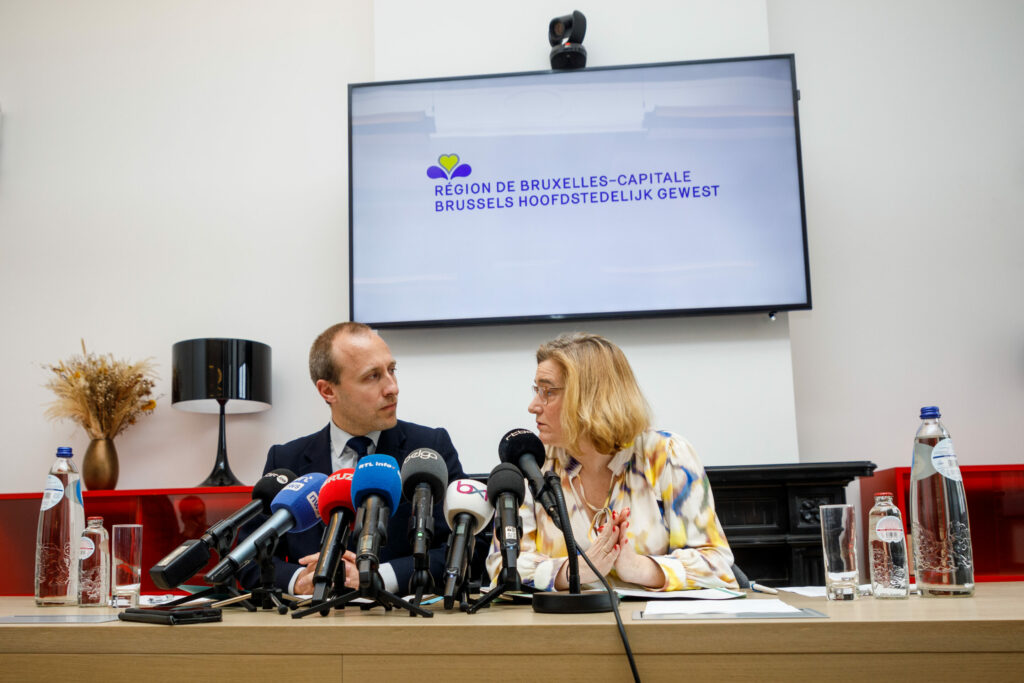More than ten months after Belgium's elections in June 2024, the Brussels-Capital Region has still not managed to form a new Regional Government. And the longer the process drags on, the more complex it seems to get.
As with all Belgian governments, a coalition is needed, and like many things in Brussels, the formation of its regional government is complicated by language: two separate coalitions need to be found – one in the Francophone and one in the Dutch-speaking linguistic group – which then need to find a joint coalition agreement to form a new regional Brussels Government.
This, however, is exactly where the shoe pinches.
From who is leading which party and the long-standing Socialist Party–N-VA feud to Brussels' delicate balance between Francophones and Dutch speakers, here is a simple guide to everything you need to know about the government formation process.
What were the election results again?
On the French-speaking side, the election results seemingly painted a simple picture. Liberals MR were the clear victors, winning a total of 20 seats (+7). Socialists PS came second with 16 seats (-1), but lost many votes to radical left PTB, which finished third with 15 seats (+5).
Then followed centrists Les Engagés with eight seats, gaining thousands of votes after casting off the Christian Democratic identity of its previous incarnation cdH. Behind them were greens Ecolo with seven seats (-8), who suffered a massive defeat in the elections, and regionalist DéFI with six seats (-4).
Not long after the elections, the parties were quick to find a coalition in their linguistic group: MR, PS and Les Engagés agreed to stick together, giving them 44 seats of the 72 in Parliament reserved for French speakers.
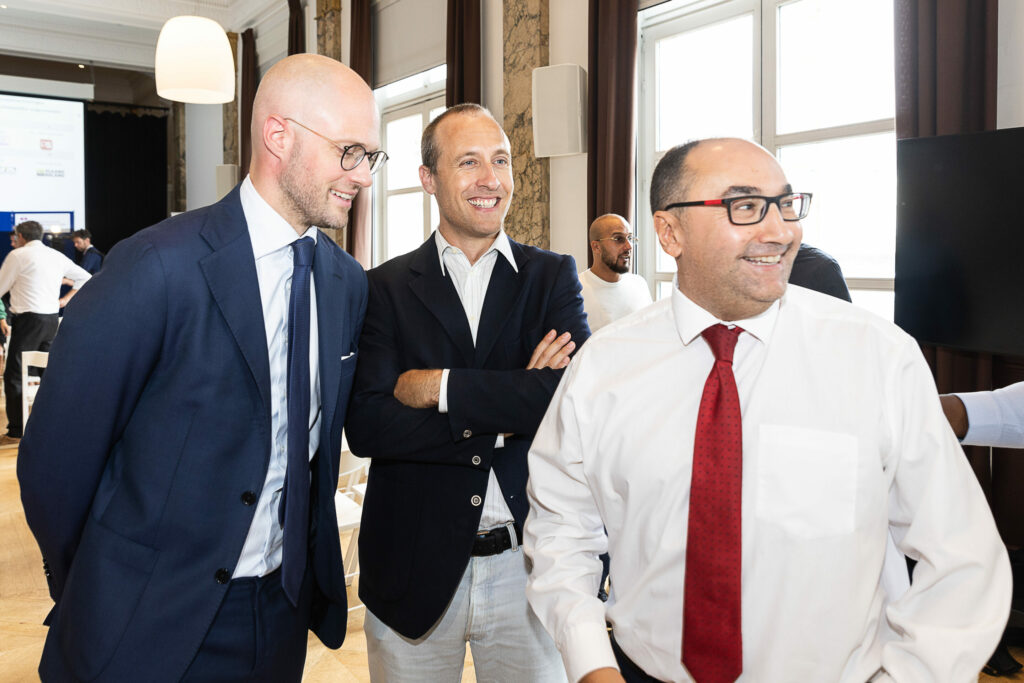
Left to right: MR's David Leisterh, Les Engagés' Christophe De Beukelaer and PS' Ahmed Laaouej. Credit: Belga/James Arthur Gekiere
On the Dutch-speaking side, the green party Groen won the elections with 4 seats – becoming incontournable in the government formation. Newcomer Team Fouad Ahidar, centre-left breakaway party, surprised everyone – including himself – and won three seats out of the blue. Formerly a member of Vooruit, Ahidar's success complicates the formation as his party took away valuable votes from the other "traditional" parties.
Flemish rightwing N-VA, liberal Open VLD, far-right Vlaams Belang and socialist Vooruit all won two seats, while radical left PVDA and Christian Democrat CD&V only had one each.
This makes finding a majority (nine of 17 seats) very difficult: there are only three ministerial positions to distribute between a coalition that would likely comprise four parties – a complication that would leave one party without a minister or state secretary, and therefore without a say in government decisions.
What is the problem?
At first glance, the problem seemed to be with the Dutch-speaking side, which did not manage to find a majority of nine in 17 seats. The Dutch-speaking side of the Brussels Government is usually made up of three parties, but as numerous parties refuse to work with newcomer Fouad Ahidar, it seems like four partners will be needed to find a coalition.
With only three ministerial positions to distribute, this poses a significant complication as it would leave one party without a minister or state secretary – and therefore without a say in government decisions.
Formator Elke Van den Brandt (Groen) first brought together her party with Open VLD and Vooruit. However, they have eight seats of the 17 reserved for Dutch speakers, meaning one party was still missing to form a majority.
The trio initially turned to CD&V, which declined the invitation to join because Benjamin Dalle wanted a ministerial position. As the Flemish Christian democrats would have been the smallest party in the coalition, it would have missed out on one.
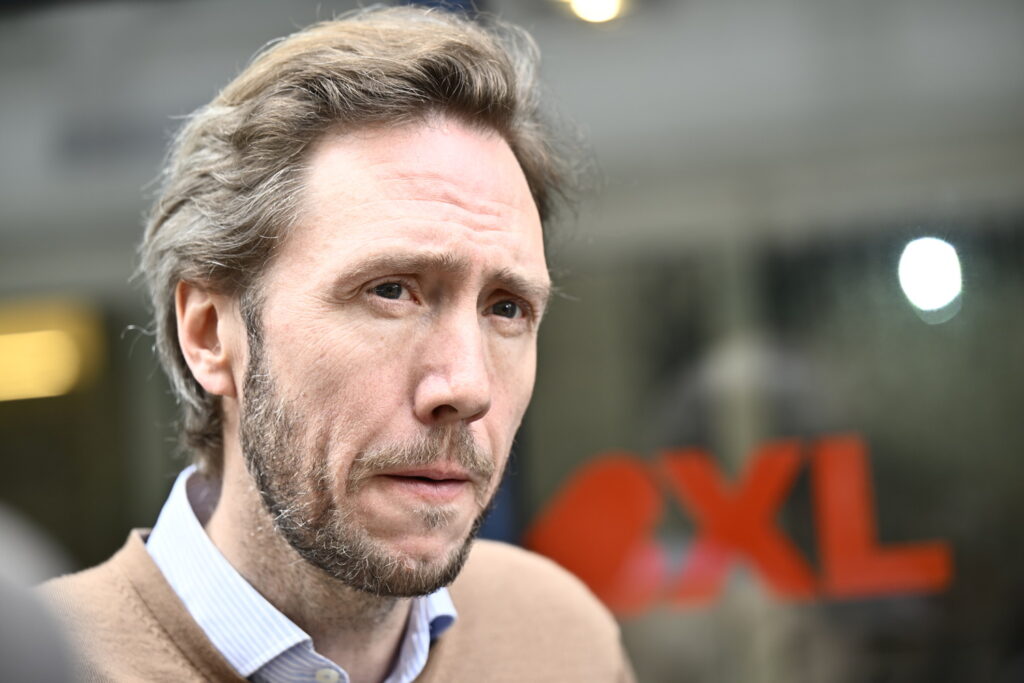
Open VLD's Frédéric De Gucht. Credit: Belga
After months of standstill, Open VLD then announced at the end of November that it would be willing to "sacrifice itself" and become the fourth partner in the alliance – but only if N-VA party joined. Instead of a minister or state secretary, Open VLD would settle for a government commissioner responsible for the budget.
This would result in an alliance between Groen, N-VA, Open VLD and Vooruit, who together have ten of the 17 seats for Dutch speakers in the Brussels Parliament. With that, it seemed like the puzzle was solved.
However, not long after the announcement, PS (French-speaking socialists) issued a veto against N-VA and left the negotiating table.
In theory, the French-speaking side has no say in the Dutch-speaking majority (and vice versa). However, all parties in both majorities will have to find a coalition agreement and then work together to implement it, meaning they do still need some degree of political and ideological convergence.
Almost five months later, negotiations are still deadlocked.
Who are the key players and what are they proposing?
As the Francophone liberals won the most votes in the elections in June 2024, MR's Brussels leader David Leisterh assumed the position of formator on the French-speaking side and was the first one allowed to try and form a coalition. However, after more than eight months of trying, he threw in the towel at the end of February.
According to the Belgian system, the party that won the second-most votes would get the opportunity to lead a new round of conversations. In this case, however, that would be PS – which had already made its position very clear.
The party has clearly expressed a veto against N-VA as it believes the Flemish nationalist party is racist and anti-Brussels and is against its reform plans. PS' leader in Brussels, Ahmed Laaouej, has refused to return to the table as long as the Flemish right-wing party still has a seat.
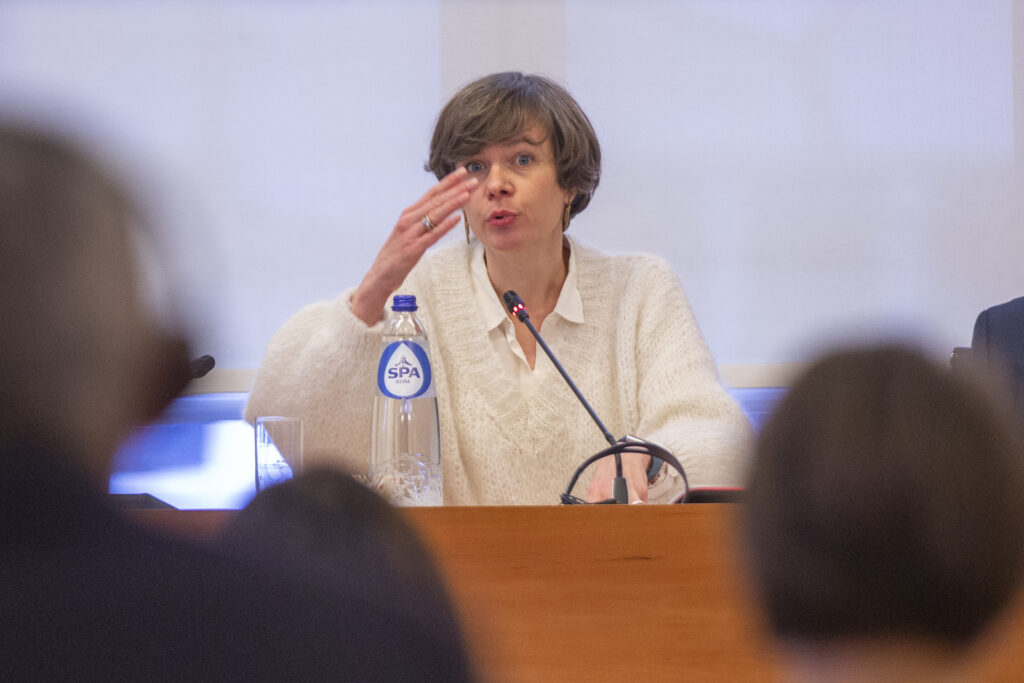
N-VA's Cieltje Van Achter. Credit: Belga/Nicolas Maeterlinck
In response, Brussels N-VA negotiator Cieltje Van Achter said that she "absolutely does not understand why Laaouej persistently refuses" to speak with her. "Does he even know me? I have done ten years of constructive opposition in Brussels – it is my capital as much as his."
After Leisterh quit, Les Engagés leader Christophe De Beukelaer and former Dutch-speaking formator Groen leader Elke Van den Brandt launched a new initiative, and started a new consultations together.
After several rounds of bilateral talks, they identified seven parties who could form the new Regional Government: MR, PS and Les Engagés on the French-speaking side, together with Groen, Vooruit, Open VLD and CD&V on the Dutch-speaking side – again leaving out the controversial N-VA.
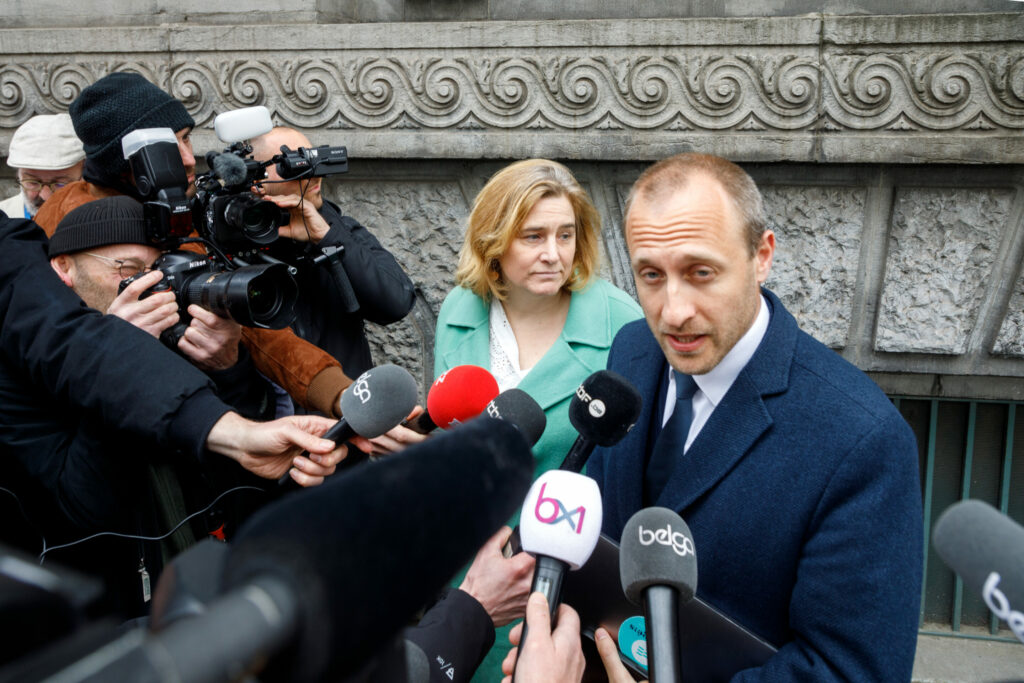
Groen's Elke Van Den Brandt and Les Engagés' Christophe De Beukelaer. Credit: Belga/Hatim Kaghat
However, Open VLD's Brussels leader Frédéric De Gucht disagreed with this alliance and called off negotiations. For him, the hard-won Flemish majority of Groen, N-VA, Open VLD, and Vooruit was swept off the table "without any clear reason and without any prospect of a better Brussels."
While swapping N-VA for CD&V resolves the problem of PS' veto against the Flemish nationalists, it creates a different issue: Open VLD tied its fate to N-VA and will only enter the coalition on the condition that N-VA participates.
Additionally, Brussels CD&V leader Benjamin Dalle again made it clear that he would not join the Brussels Government without a government position – bringing the negotiation talks back to square one.
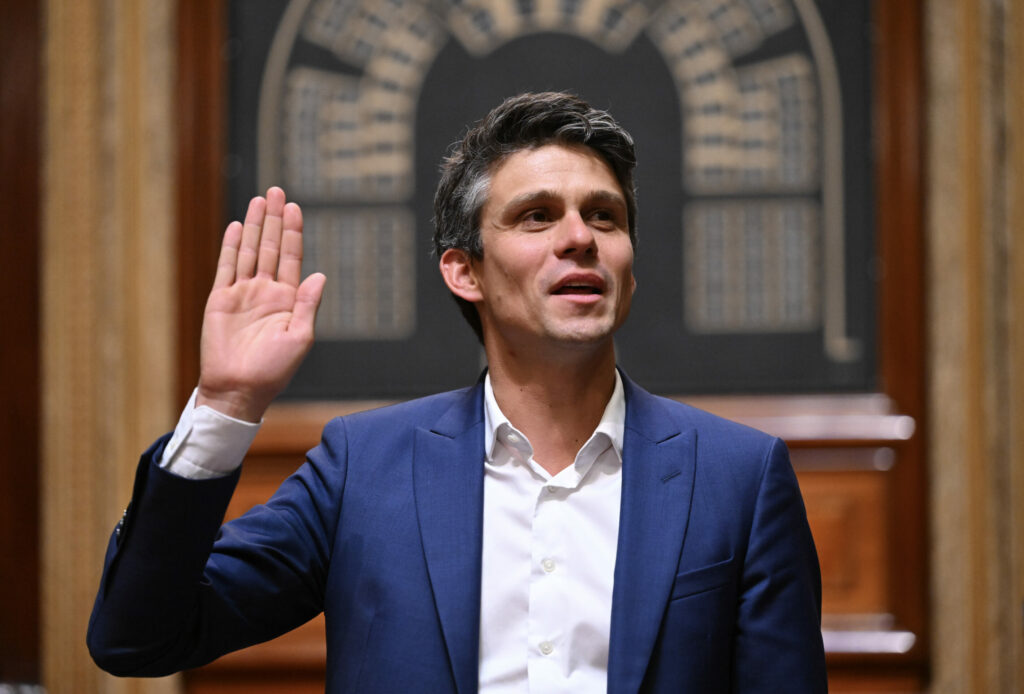
CD&V's Benjamin Dalle pictured during the oath taking ceremony for the co-opted senators, at the Senate after the federal elections from June 9, Thursday 18 July 2024, in Brussels. Credit: Belga / John Thys
In the meantime, MR's federal leader Georges-Louis Bouchez also got involved in the discussions and asked all parties to consider a coalition in which N-VA would be the Dutch-speaking side's fourth party. This means they would not get a ministerial position and therefore no say in the government, but instead get a government commissioner.
However, this proposal was not approved. "A ministerial position or a government commissioner for N-VA remains the same. For us, it means N-VA is part of the Brussels Government," said Laaouej.
Without a collective green light, Bouchez said there was "no choice" but to propose a minority government – most likely without PS. In practice, a minority government means that all the MPs from governing parties would not hold the majority of seats in parliament.
MR and Les Engagés spoke of "a coalition of the willing," and are trying to form as big a group as possible.
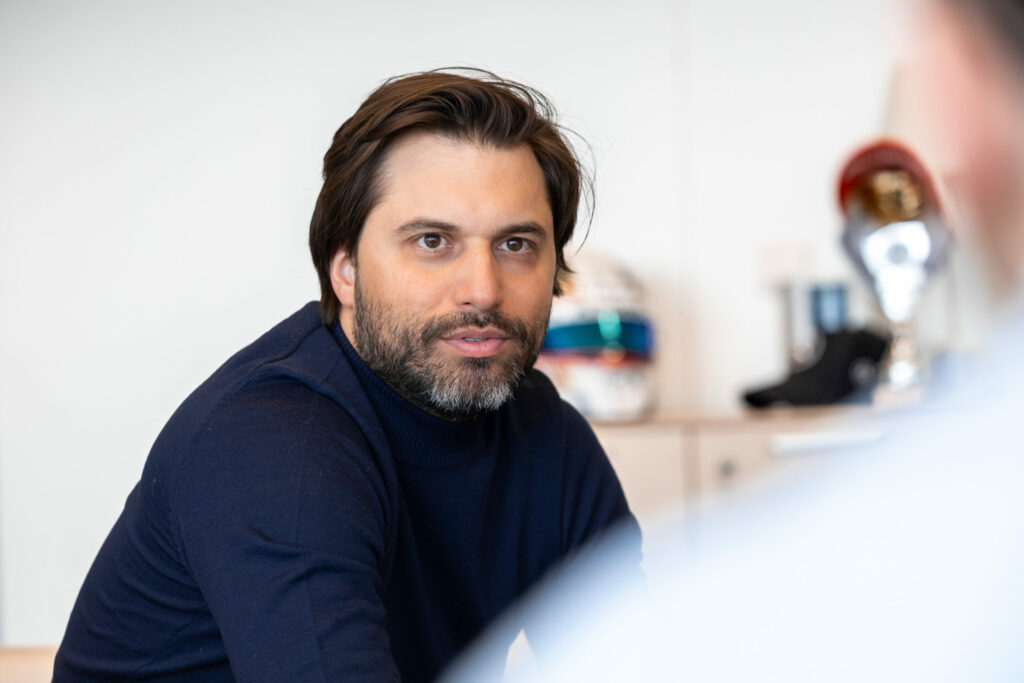
Georges-Louis Bouchez, MR leader, during an exclusive interview with The Brussels Times in his office at the MR headquarters in Brussels.
On the French-speaking side, however, that is proving difficult: MR (20 seats) and Les Engagés (8) are sure to participate, but DéFI (6), PS (16) and Ecolo (7) refused the proposal. That would give a maximum of 28 out of 72 French-speaking seats. The other linguistic group does have a majority: Groen (4), Vooruit (2), Open VLD (2), and N-VA (2) together hold ten out of 17 Dutch-speaking seats.
Combined, this would give the minority government 38 of the 89 seats in the Brussels Parliament – seven seats too few to appoint ministers and install a government, making it unlikely that this proposal will come to pass.
On Tuesday, Belgium's Prime Minister Bart De Wever (N-VA) addressed the formation issues in the Federal Parliament. "There is a political blockage, linked to the fact that some do not want to respect the institutional reality in Brussels," he said, referring to PS's veto against a Dutch-speaking majority with his N-VA.
"But there is nothing to stop the parties from forming a majority right now," he added. For all intents and purposes, however, it seems like the road to a Brussels Government is still long.
Can we not just hold new elections?
No. Whatever happens, new elections are not an option. The Belgian Constitution (Article 117) states that Regional elections can only be organised every five years, so not until June 2029.

